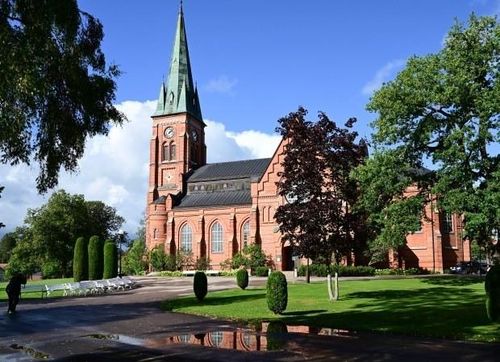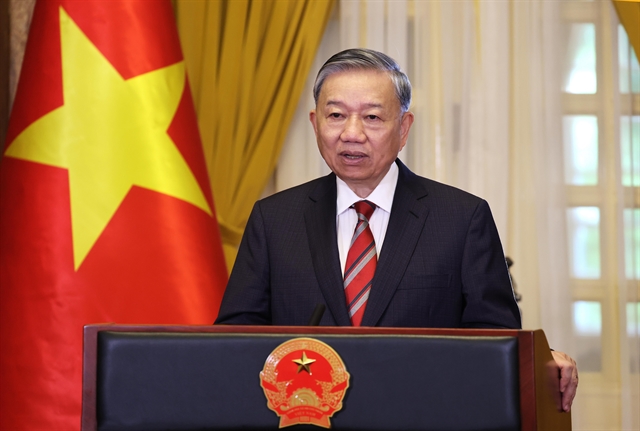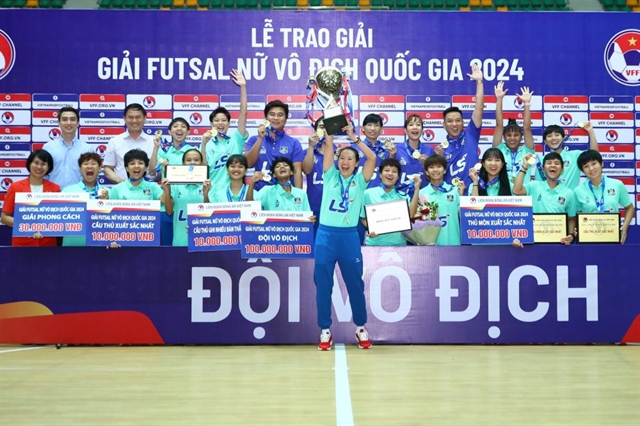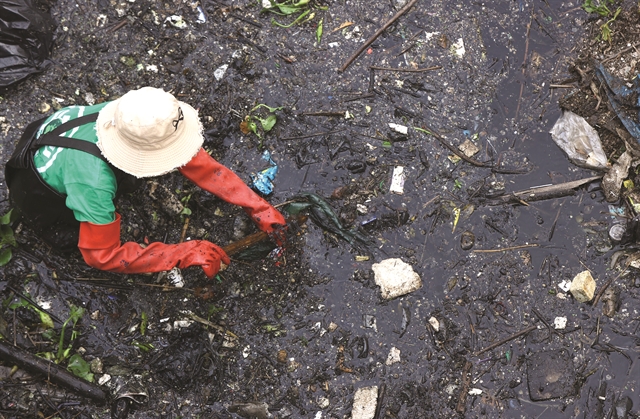▌Câu trả lời hay nhất
Ốc Thị Quỳnh Anh wants to use her story to inspire other ethnic girls,ơMúsoi kèo nhà cái 88 to encourage them to courageously chase their dreams, gain access to knowledge and seize good opportunities for a better future.
By Khánh Linh & Đào Thọ
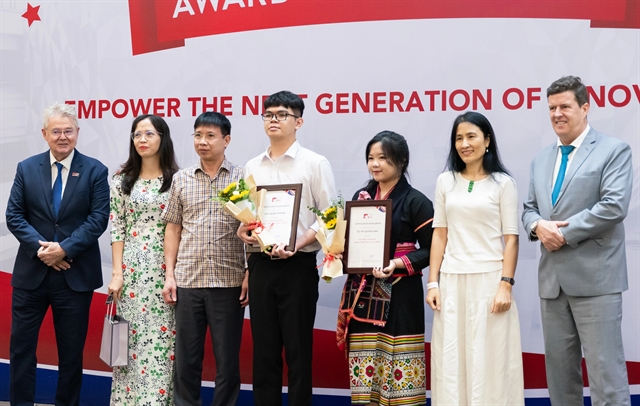 |
| Ốc Thị Quỳnh Anh (3rd right) receives the full scholarship worth about VNĐ1 billion (US$40,625) at the British University Vietnam. Photos courtesy of Quỳnh Anh |
A young Khơ Mú ethnic minority girl from the central province of Nghệ An, Ốc Thị Quỳnh Anh, will officially become a student at the British University Vietnam this November, with a full scholarship worth about VNĐ1 billion (US$40,600).
Earning a full scholarship is challenging and stressful. For a young girl with a difficult background like Anh, whose mother is in prison and whose family has been torn apart, the learning journey has been many times harder.
This reward is the result of her tireless efforts to turn her dream of education into a reality.
Born in a small village in the mountainous Tương Dương District of Nghệ An, Anh had a very difficult childhood. Her family was very poor, and their meals usually consisted only of plain rice, wild vegetables and salted peanuts.
Because of their poverty, when she was just four years old, Anh had to leave her family to live with her aunt in Vinh City to reduce the family’s burden.
It wasn’t until the second semester of 9th grade that she was able to reunite with her family and continue her studies at a middle school in Tương Dương. However, this was also the most tumultuous time for her family.
Anh vividly remembers one afternoon in April 2021, when two strange men came to her house and took her mother away, briefly saying it was for “some problems”. Seeing her mother’s expression, Anh was terrified and cried silently. Her father, who was working far away, rushed home upon hearing the news.
“I never expected that would be the start of my mother’s 11-year sentence in prison,” Anh recalled somberly.
After her mother was imprisoned, the family had to sell their house and split up. Her father took her two younger brothers to live with their grandparents in Đô Lương District, about 100km from Tương Dương. Anh stayed in the school dormitory to complete her high school education.
“There were times when I cried at night and wanted to drop out of school to work to support my family,” she recalled.
From adversity to achievement
Her grandfather was her greatest source of support as he had used his entire VNĐ2 million (US$80) monthly pension to help her continue her studies.
“All around me, my peers were getting married and having children. Many people told me to stop chasing unrealistic dreams. But I didn’t want to repeat the cycle of poverty and child marriage,” she said.
Anh worked tirelessly in her studies. She was an outstanding student throughout her three years at the Tương Dương High School. In 2021, thanks to her third-place provincial award in Literature and her high school academic record, she was admitted to the English Language Department of Hanoi University.
Anh was exempt from all tuition fees because she was a student from a minority ethnic group and a low-income household. However, covering living expenses in the big city was very difficult for her.
At school, she felt a lot of pressure because many of her classmates were really talented.
Anh had to take several part-time jobs after class, including tutoring and selling goods, since her grandfather’s pension was not enough to cover her life in Hà Nội.
In 2022, Anh was the only student from her university to make the list of 142 outstanding ethnic students honoured nationwide for their academic achievements.
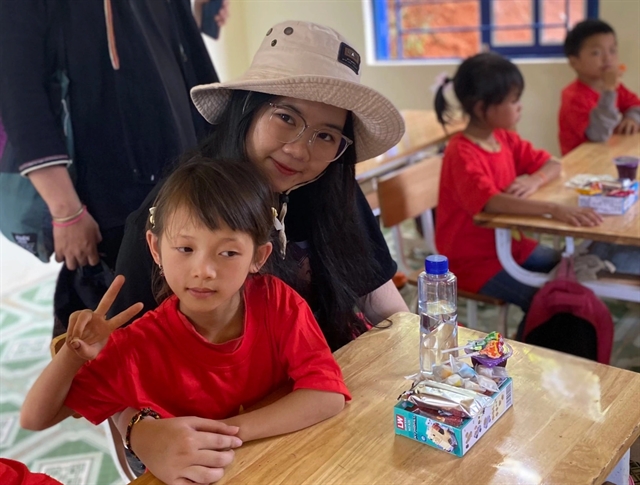 |
| Anh on a field trip for the Nuôi Em (Meals for Children) project, which provides free lunches to pupils in mountainous regions. |
During this time, she received a great deal of support from charitable organisations and individuals.
“I was fortunate to receive assistance from so many people, like the VNĐ3 million ($120) scholarship from the scholarship fund founded by singer Lê Cát Trọng Lý, or an old laptop from the Được Học (Educated) programme of the Nuôi Em (Meals for Children) project founded by Hoàng Hoa Trung,” she said.
“I understand that without this timely assistance, my path to education and escaping poverty would have been much more difficult.”
However, her joy was short-lived when she received the news that her grandfather had passed away.
Overwhelmed with grief and difficulties, Anh decided to look for more scholarships to continue her dream of higher education.
Her determination to dream and not give up helped her win the Lion Heart Scholarship from the British University Vietnam in 2024, worth about VNĐ1 billion for three years of study.
Spreading hope
"I’ve just visited my mom in prison," was the first sentence in Anh’s essay submitted for the Lion Heart Scholarship.
In her essay, the girl poured out the story of her life’s struggles. With deep sincerity, her story flowed as if it were coming straight from her heart.
“I set aside my feelings of shame and wrote about my personal experiences and how I overcame adversity,” she said. “There were times when I was so exhausted I wanted to give up. There were sleepless nights that almost drained me. But I’m thankful to myself for not giving up.”
Anh said what convinced the school to award her the scholarship was her dream of bringing happiness to those around her.
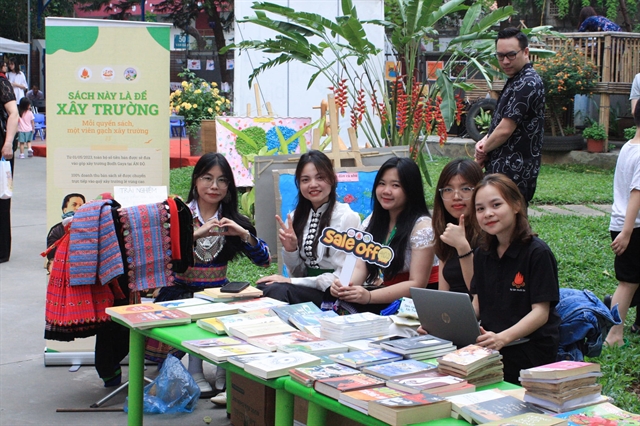 |
| Ốc Thị Quỳnh Anh (centre) and other volunteers at an event to raise funds for building schools in remote areas as part of the 'Books for Schools' project. |
Anh has actively participated in community projects and strove to do her best. She signed up to be a volunteer for the Nuôi Em (Meals for Children) project, which provides free lunches to pupils in mountainous regions.
She is also an enthusiastic member of the Được Học (Educated) project, which donates laptops to ethnic students in need. Additionally, she has participated in receiving and selling donated books to raise funds for building schools in remote areas as part of the Sách Này Là Để Xây Trường (Books for Schools) project.
“More than anyone, I understand how hard it is for children in mountainous areas like me to pursue education as a path out of poverty. The biggest limitation and barrier are often the gender bias ingrained in their own thinking. Many of them believe they aren’t smart enough, don’t have the ability to attend university, or lack confidence in themselves and their future,” Anh said.
“I want to use my story to inspire them, to encourage them to courageously chase their dreams, gain access to knowledge, and seize good opportunities for a better future.”
There’s a phrase she often shares with children during her community activities: “Never blame poverty, because poverty and hardship are not reasons to drop out of school or give up on your dreams.” VNS


